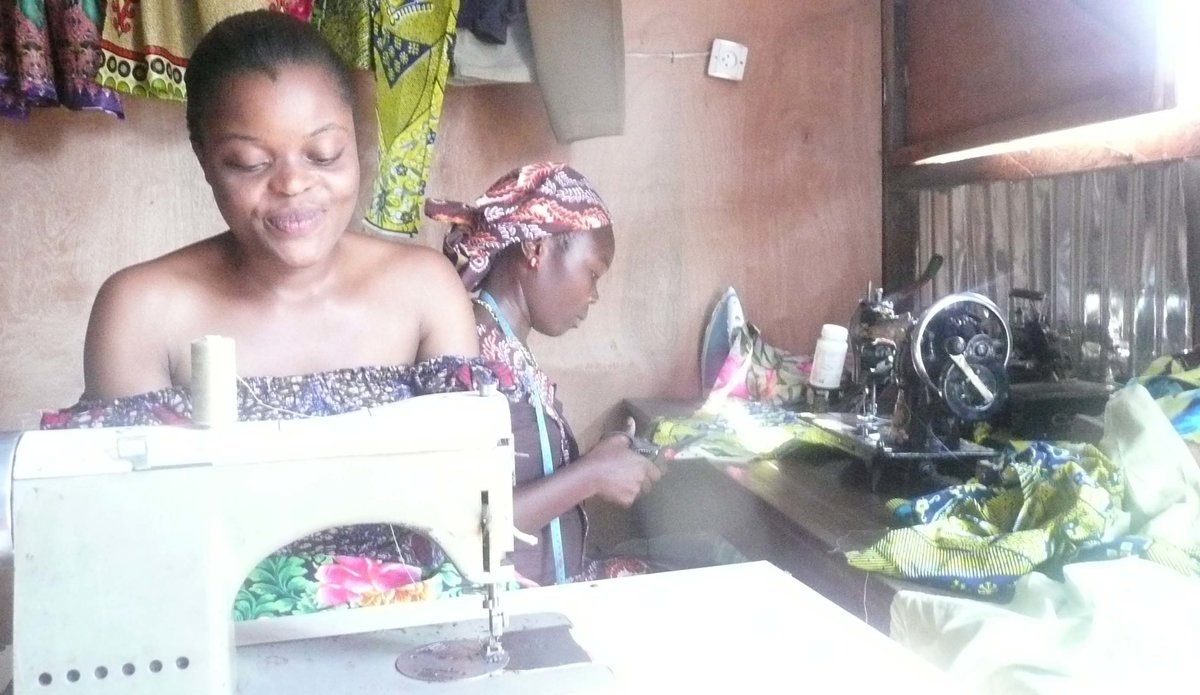Thousands of Congolese benefitting from MONUC's Quick Impact Projects
Kinshasa, 14 May 2010- Quick Impact Projects (QIPs) have touched the lives of many thousands of Congolese people all over the country. Since 2001 the mission has received a modest budget of $1million each year to undertake small community based projects to enhance MONUC's relationship with the local population. 724 have been completed since 2001 and a further 76 are underway this fiscal year. The SRSG takes a close personal interest, giving final approval to every QIP recommended and takes the opportunity to inaugurate completed QIPs during his travels to the provinces.
QIPs are facilitating MONUC's mission not only with its humanitarian and development objectives but also with its wider military and political aims. MONUC military contingents and brigades execute QIPs directly in their areas of operation. This allows them to interact with and gain the confidence of the communities and at the same time and help communities with their immediate needs pending arrival of longer term development assistance. A small amount of money spent carefully can have a tremendous impact on the ground. QIPs are used to clear 'bottle-necks' restricting access and development -- sometimes by rehabilitating a bridge or a road, previously inaccessible areas can be opened up. In providing 'seed money' through a QIP to begin a project, larger donors can often be attracted to develop the idea into something more far-reaching and sustainable for a greater number of beneficiaries and a wider geographic area.
QIPs are driven by demand from the local community and local participation is required. Projects must be highly visible with clear objectives, benefit as many people as possible, and sustained by the community and/or the local authorities when completed. Projects must involve reliable, experienced implementing partners and local capacity is being developed with the use of Congolese organizations. Historically, almost 75% of QIPs are/have been implemented by local NGOs and local faith based organizations, and the remaining 25% implemented by MONUC military contingents and other international entities. Further, QIPs are contributing to the local economy as all materials and labour are sourced locally for the projects with only a small percentage of special equipment being sourced outside the country.
QIPs allocation have primarily been utilized for improvements in access, health and education through rehabilitations of infrastructures and provision of basic equipment. In addition to this, community development projects such as rehabilitations of community centers, sports facilities, skills training for marginalized groups; awareness/sensitization programs on sexual/gender based violence and the electoral process; Peacebuilding initiatives through the promotion of roundtables, conflict resolution and human rights workshops; and Reintegration of marginalized groups, particularly sexual/gender based violence victims, ex-combatants, widows and orphans, were other popular uses of QIPs funds.
QIPS applications are evaluated by Project Review Committees (PRCs) in each province office before going to the SRSG for final approval. The Head of Office (HoO) chairs the PRC and oversees the portfolio of approved QIPS in his/her province. The PRC looks for projects that are well-conceived and planned, with a detailed implementation timeframe not exceeding 3 months and a realistic corresponding budget. Projects implementation are monitored closely by MONUC staff and funds are made available according to progress made on the ground. Projects may be proposed by an NGO or a MONUC staff member, be sponsored by a MONUC section, which is then responsible to work closely with the applicant to implement the QIP successfully.
The programme is overseen by the Office of the SRSG and managed by the QIPs Unit staff.
QIPS REQUIREMENTS
- High visibility projects
- Benefits a large segment of the population.
- Ceiling not to exceed US$25,000
- Reliable implementing partner.
- Completed within 3 months.
- Recurrent costs excluded.
MAJOR ACCOMPLISHMENTS
- 75% of QIPs implemented by local entities
- Supports local economies through purchases of inputs and hiring of daily wage labour.
- Supports to building capacity of local entities to manage donor funds.
- Over 6 million, roughly 10% of the population, have benefitted from QIPs.
- Supports marginalized groups, such as young mothers, widows, physically challenged, etc.
- Major opportunity for MONUC to interact with the population.
 UN
UN United Nations Peacekeeping
United Nations Peacekeeping





